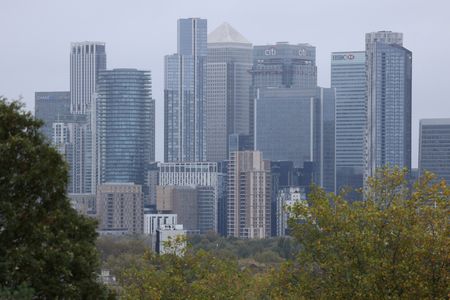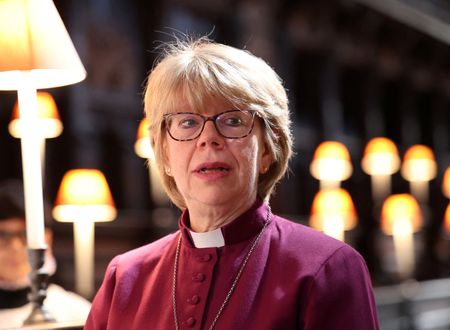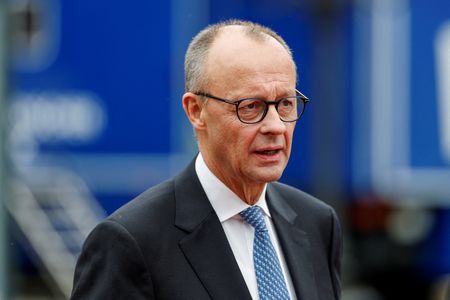By David Milliken
LONDON (Reuters) -British business activity grew at the slowest pace in five months in September as companies and consumers put big spending decisions on hold as they waited to see if they would be hit by tax rises in November’s budget, a survey showed on Friday.
The S&P Global Purchasing Managers’ Index for Britain’s services sector sank to 50.8 in September from 54.2 in August, its lowest since April – when major tax rises took effect on businesses – and well below an initial estimate of 51.9.
The composite PMI – which includes a weak reading for the manufacturing PMI from Wednesday – was also revised downward to its lowest since April at 50.1, only a whisker above the 50-mark that divides growth from contraction.
“This summer’s acceleration in output growth is now looking like a flash in the pan as elevated political and economic uncertainty has reasserted itself as a constraint on service sector performance,” S&P economics director Tim Moore said.
“Many survey respondents suggested that corporate clients had deferred spending decisions until after the Autumn Budget, while households were also hesitant about major purchases,” he added.
TAX HIT LIKELY IN NOVEMBER BUDGET
Finance minister Rachel Reeves is due to present her second annual budget on November 26 and many economists think she will need to raise taxes or squeeze spending by tens of billions of pounds, just over a year after she set out the biggest tax-raising budget since 1993.
Businesses were the hardest hit last year with an increase in mandatory social security contributions which took effect in April.
Economics consultancy Pantheon Macroeconomics said the latest PMI reading pointed towards the Office for National Statistics producing an initial estimate of third quarter GDP growth of 0%-0.2%, well below the Bank of England’s 0.4% forecast, though it expected the official growth number to be revised higher.
“The PMI tends to underestimate growth when uncertainty is elevated,” Pantheon’s chief UK economist Rob Wood said.
Matt Swannell, chief economic adviser at forecasters EY Item Club, said the fall in the PMI “probably reflects sentiment rather than true changes in output”.
Sterling and British government bond prices were little changed after the data.
S&P said its data showed services businesses had cut jobs for each of the past 12 months while companies’ costs were rising more slowly than before.
“Signals of softening labour market conditions and easing inflationary pressures are likely to provide support to the more dovish shift in the policy debate at the Bank of England,” Moore said.
BoE policymakers have been divided on the extent to which a likely temporary pick-up in inflation to close to double its target should make it cautious about cutting rates further from their current 4%.
(Reporting by David Milliken; Editing by Toby Chopra, Suban Abdulla and Emelia Sithole-Matarise)










